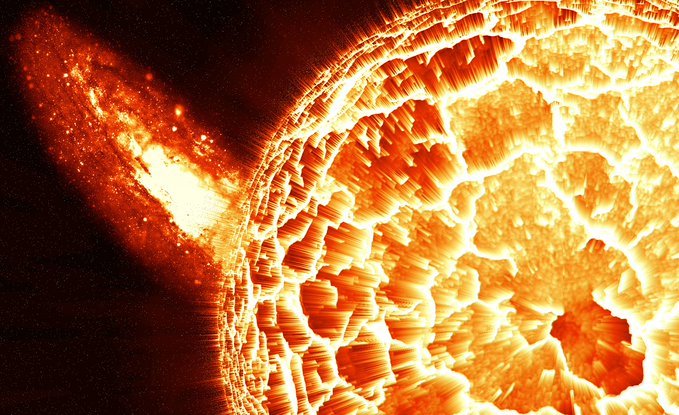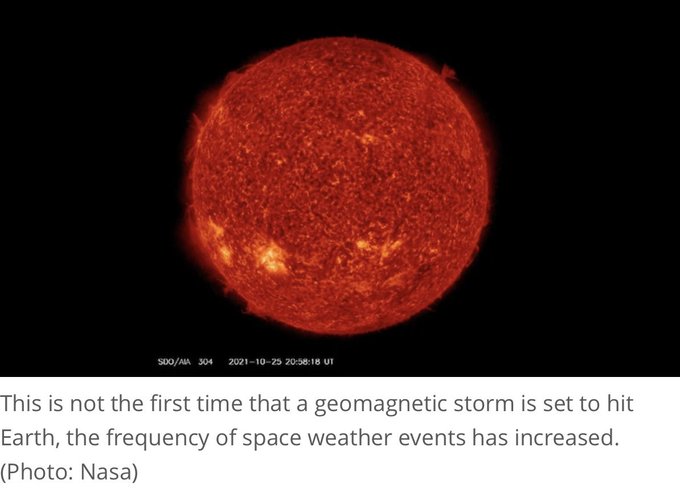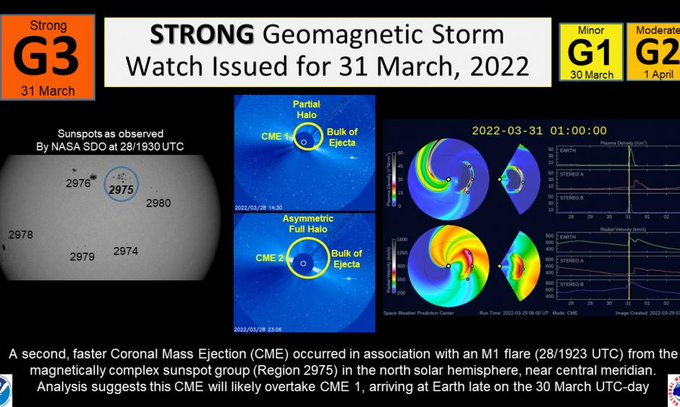Due to this storm, the outer surface of the Earth can be heated, which affects the satellites. Due to this effect, there may be interference in GPS navigation, mobile phone signal, and satellite TV.

The indian Institute of Science education and Research, Kolkata, expressed the possibility that the geomagnetic storm emanating from the sun can hit the earth at any time tomorrow i.e. on Thursday. There may also be a possibility of a blackout.
Know what is a geomagnetic storm
According to a study by the US space agency NASA, there are massive massive explosions on the surface of the sun, during which some parts release huge amounts of energy with extremely bright light called solar flares.

In which a billion tons of magnetic energy is released into space at a speed of several million miles per hour, due to which some part of the outer surface of the sun opens and energy starts coming out of this hole and it looks like a ball of fire.
If this energy is released continuously for several days, then very small nuclear particles also start coming out and spreading in the universe, which is called a geomagnetic storm.

Solar flares were released on march 28
Solar flares were issued from active regions 12975 and 12976 on the sun on march 28. The center said that since these flares collide with the Earth's magnetic field, there is a possibility of a coronal mass ejection induced moderate geomagnetic storm. T
he center said in a tweet that our model fit shows a very high probability of an Earth impact with a speed of between 496-607 km/s on march 31.

What would happen if Earth was attacked by a geomagnetic storm?
The impact of a geomagnetic storm on Earth is determined by its direction. If this storm erupts from the Sun's surface toward the Earth, the energy it emits will have an effect there, although the chances of it injuring people are slim.

According to scientists, the Earth's magnetic field shields ordinary people from the sun's radiation, yet it still has an impact on specific areas.
Magnetic forces radiating from the Earth's core produce a shield surrounding the atmosphere, greatly reducing the amount of radiation it emits.




 click and follow Indiaherald WhatsApp channel
click and follow Indiaherald WhatsApp channel